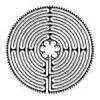-
Welcome to Celiac.com!
You have found your celiac tribe! Join us and ask questions in our forum, share your story, and connect with others.
-
Celiac.com Sponsor (A1):
Celiac.com Sponsor (A1-M):
-
Get Celiac.com Updates:Support Our Content
Do I Really Need To Know What I Have?
-
Get Celiac.com Updates:Support Celiac.com:
-
Celiac.com Sponsor (A17):
Celiac.com Sponsor (A17):
Celiac.com Sponsors (A17-M):
-
Recent Activity
-
- Wheatwacked replied to Dora77's topic in Coping with Celiac Disease3
Ocd making gluten fears unmanageable. Need advice
How high is too high? I take 10,000 IU vitamin D3 every day. My blood is stable at 80 ng/ml (200 nmol/L). Even at 10,000 a day it took 8 years to raise it to 80. Higher levels of 25(OH)D in blood can moderate the autoimmune attack. Vitamin D Is Not as Toxic as Was Once Thought Lower vitamin D levels have also been associated with increased OCD symptom...- asymtomatic
- celiac
- (and 6 more)
-
- Scott Adams replied to lmemsm's topic in Gluten-Free Foods, Products, Shopping & Medications1
Finding gluten free ingredients
I completely understand the frustration of finding reliable gluten-free ingredients—it's exhausting when trusted products disappear or companies don't respond to safety inquiries. For teff flour in bulk, check out Azure Standard or Bulk Foods; both often carry gluten-free grains in larger quantities and clearly label dedicated facilities. For soy flour, ... -
- Scott Adams replied to lmemsm's topic in Gluten-Free Recipes & Cooking Tips1
beans in dessert recipes
Beans in desserts are a fantastic way to add moisture, structure, and protein while keeping recipes gluten-free. Black bean brownies are a classic, but other beans like adzuki and pinto can also work well—adzuki beans are naturally sweet and often used in Asian desserts, making them great for cookies or cakes. Lentils, especially red lentils, blend smoothly i... -
- lmemsm replied to Dora77's topic in Coping with Celiac Disease3
Ocd making gluten fears unmanageable. Need advice
This may make you feel better about cross-contamination: https://nationalceliac.org/celiac-disease-questions/do-i-need-new-designated-pans-plates-and-utensils/ https://theceliacscene.com/rethinking-cross-contamination-no-need-to-be-so-careful/ I use Tom's of Maine or a toothpaste that states it's gluten free. I have allergic reactions to some toothpastes...- asymtomatic
- celiac
- (and 6 more)
-
- knitty kitty replied to Dora77's topic in Coping with Celiac Disease3
Ocd making gluten fears unmanageable. Need advice
Hello, @Dora77, I agree with you that your doctors aren't very knowledgeable about Celiac Disease. My doctors didn't recognize nutritional deficiencies either. I became very deficient in vitamins before I was diagnosed, so having experienced similar, I understand what a difficult time you're having. Poor absorption of essential nutrients is...- asymtomatic
- celiac
- (and 6 more)
-



Recommended Posts
Archived
This topic is now archived and is closed to further replies.